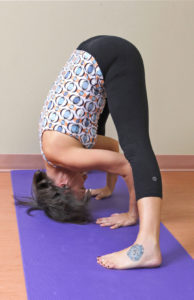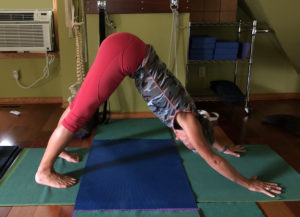Donald Trump, real-estate mogul and newly-elected American President, has been touted as opportunistic and unpredictable by more than just the media.
Both traits are common to many entrepreneurs whose modus operandi for achieving results is get an idea, act; get another idea, act; get another idea, act; and so on. Of course, those who voted for Trump did so because they viewed him as a man of results. Arguably, opportunistic and unpredictable leadership may prove to be a boon for the American people who desire something other than the status quo.
IMHO, this leadership style only becomes a concern if erratic, moody behaviour replaces intuition and produces impulsive decisions. In the process of innovating to stay current or even lead the pack, desperation can trigger an impulse for immediate action without regard for the consequences. Decisions of this nature are not just impulsive, but without consultation, they lack breadth of scope. This concerns me because it goes against the nature of our emerging global experience and needs.
One of the great life lessons emerging from our current iVUCA global environment is the tremendous value added when collaborative efforts solve “wicked” societal problems. While in these collaborative partnerships, we quickly recognize the impact of diverse perspectives on creativity, quality and quantity of decisions. For just these reasons, humans love the creative process — it makes us all better decision makers. However, in our interactions with others we still find ourselves challenged by our decision-making processes; in particular, understanding the relationship between intuition, impulse and intellect.
In the creative process, we typically brainstorm all possibilities without judgment or analysis. Inherent in creating this list of possibilities exists intuition, not to be confused with impulse. Intuition is defined as understanding or knowing without conscious recourse to thought, observation or reason. This internal sensor is often referred to as gut-feeling, sixth sense, instinct or heart because it is not easily understood by our rational thinking processes.
Frankly, given humanity’s long-running love affair with science and empirical thinking, that is, if it can’t be seen, smelled, tasted, touched or heard, then it can’t be real or true, intuition, until recently, was often equated with impulsivity. As a consequence of this belief, few people trusted their intuitive inspiration rejecting it as a lack of self-control. Fast-forward into our contemporary world only to discover that many are relearning how to trust and utilize their intuition. Why? Because the challenges and opportunities we face today are not the same as those of yesterday, and therefore cannot be resolved based solely on past experience or rational evidence. In spite of an over reliance on science, it appears that innovation requires intuition.
Impulse, on the other hand, is not an internal sensor but rather a sudden wish or urge that prompts an unpremeditated act or feeling. Impulsive behaviour is often attributed to a failure of self-control and an inability to pay attention such as witnessed in Attention Deficit Hyperactivity Disorder (ADHD). Impulsivity, in its extreme, can appear as driven, compulsive obsessions resulting in unhealthy and unproductive reactions. Conversely, intuitive inspiration is our early warning sensor informing us of emerging events and buying us the precious time we need to create a healthy response.
There is no logical way to the discovery of these elemental laws. There is
only the way of intuition, which is helped by a feeling for the order lying
behind the appearance. … The only real valuable thing is intuition. Albert
Einstein
Intuition becomes increasingly valuable in the new information society precisely
because there is so much data. John Naisbitt, Megatrends and Re-inventing
the Corporation
With regard to intellect, Merriam-Webster describes it as “the power of knowledge as distinguished from the power to feel and to will — the capacity for knowledge; the capacity for rational or intelligent thought.” Although intuition is certainly part of the intellect, we have traditionally forfeited it for rational information in the form of proven facts or figures.
When reflecting on the creative process, intuitive inspiration first enables us to envision potential and generate possibilities. Then we can rationalize with our intellect whether each possibility will bring our desired outcome. Our intellect critically analyzes the pros and cons across all options thereby informing our final choices.
Integrating intuition and intellect, rather than accepting one and rejecting the other, ensures we are both innovating and optimizing our experience. More importantly, intuition comes from a source beyond oneself, and in its unlimited capacity, this ‘cosmic library’ hosts the whole of experience and yet-to-be-experienced potential. Intellect, however, emerges as a result of past experience and information; a much more limited pool to draw upon. By combining the two, we are essentially rationalizing our intuitive inspirations in the physical world and thereby making the abstract, even esoteric, concrete.
What does your intuition tell you about Donald Trump’s presidency and its impact on us over the next four years?
For more on tapping into intuition, click here.




